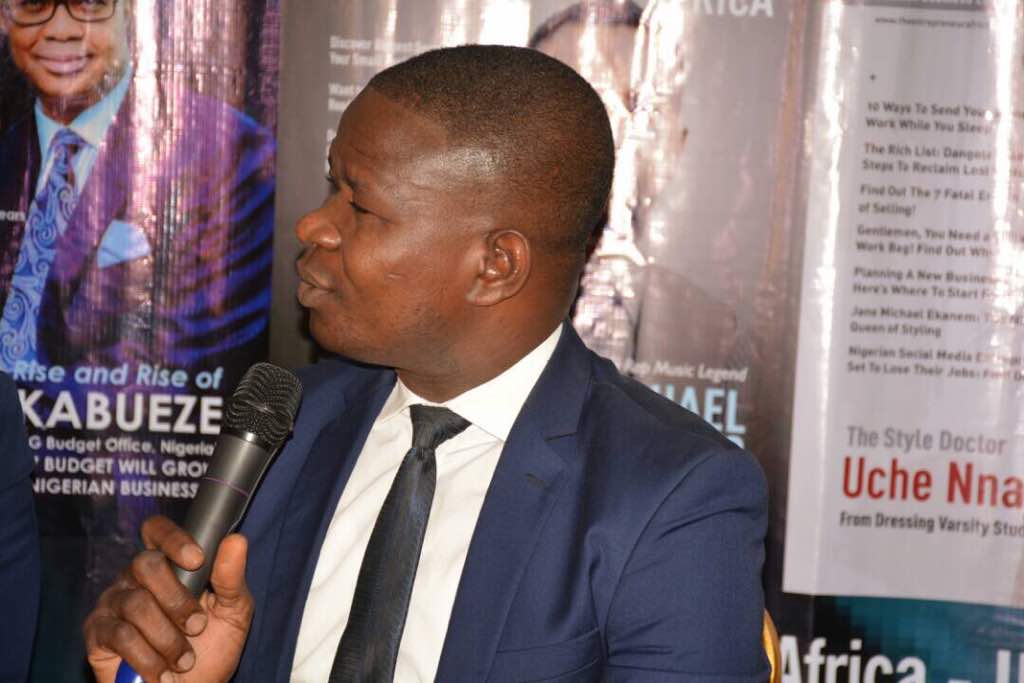In an article titled, “The General Council of the Bar (GCoB) Is Not Vested with the Power to Issue RPC,” and published by Pointblanknews on 19 September 2020, a very respected learned friend, Mr. Kazeem A. Oyinwola, reached the following conclusions (as fairly summarized by me; I hope I got him right):
“It is therefore settled that the extant LPA is the Legal Practitioners Act Cap L11 LFN 2004 excluding the amendment in the Legal Practitioners (Amendment) Act (Decree No. 21, 1994); there is nothing in the Legal Practitioners Act Cap L11 LFN 2004 vesting the GCB with the power to power to issue, make or amend RPC; there is nothing in the Legal Practitioners Act Cap L11 LFN 2004 vesting the Hon Attorney-General of the Federation with the power to power to issue, make or amend RPC; if it is true that it was the GCB that made the 2007 RPC, then the Council would need to tell us where it got the power to make the RPC 2007 (since Decree No. 21 1994 that vested the GCB with the power to make the RPC is deemed repealed by the LPA CAP L11 LFN 2004). the amendment of the RPC 2007 by the Hon Attorney-General of the Federation cannot be said to be null and void, because the HAGF did not rely solely on section 12(4) of the LPA, he also relied on ‘all other powers enabling’ him ‘in that behalf’ and until anyone can show us any section of the LPA Cap L11 LFN 2004 which confers exclusive power to issue, make or amend RPC on the GCB, the presumption of regularity seems to operate in favour of the HAGF until rebutted.”. (See: http://pointblanknews.com/pbn/articles-opinions/the-general-council-of-the-bar-gcob-is-not-vested-with-the-power-to-issue-rpc/ accessed September 23, 2020)
With due respect, I think my learned friend’s submission that the Legal Practitioners (Amendment) Decree No 21, 1994 (which confers on the GCB exclusive powers to issue the RPC) was not a part of the LPA, CAP L11, LFN, 2004, is erroneous. In the brief commentary, following below, the present writer tries to show that:
(1) the Revised Edition of the Legal Practitioners Act CAP L11, LFN, 2004 (incorporating the Legal Practitioners (Amendment) Decree No 21, 1994), and published as supplement to the Laws of the Federation of Nigeria, 2004, by the Federal Ministry of Justice, Abuja, Nigeria, is the CURRENT/APPLICABLE version of the Legal Practitioners Act, and
(2) the General Council of the Bar (the Bar Council) (GCB) possesses exclusive power and authority to make, revise, amend or otherwise alter the RPC.
.
Section 2 of the Revised Edition (Laws of the Federation of Nigeria) Act, 2007 provides that “any inadvertent omission, alteration, or amendment of any existing statute shall not affect the validity and applicability of the statute.” (https://laws.lawnigeria.com/2018/04/23/lfn-revised-edition-laws-of-the-federation-of-nigeria-act-2007/ accessed September 23, 2020). Section 22 (1) of the Interpretation Act, CAP123, LFN, 2004 provides that “where an enactments amended by the insertion or omission of words or by the substitution of words for other words, then on printing the enactment at any time after the enactment takes effect, the person authorized to print the enactment shall, if so directed by the Attorney-General of the Federation, print the enactment as so amended.” (https://www.lawyard.ng/wp-content/uploads/2016/01/INTERPRETATION-ACT.pdf accessed September 23, 2020). Pursuant to the aforesaid, the then Attorney-General of the Federation, Mohammed Bello Adoke, SAN, CFR, stated in the foreword to the Revised Edition of the LPA, as follows:
“In keeping with the constitutional responsibility of my office as the Chief law officer of the Federation and the mandate of the Federal Ministry of Justice to ensure that legislation in the public domain are comprehensive, certain and predictable, I have found it extremely imperative to harmonize the Legal practitioners Act, CAP L11, LFN, 2004 with the Legal practitioners Act (Amendment) Decree No 21, 1994… From all indications, the Legal Practitioners (Amendment) Decree No 21, 1994 was not REPEALED or SPENT but was inadvertently ‘OMITTED,’ ‘not incorporated’ into the Legal Practitioners Act, CAP L11, LFN, 2004, during the period of review, compilation and codification. The fact that the Legal Practitioners (Amendment) Decree No 21, 1994 is still an EXISTING LAW has been upheld by the Supreme Court in the case of Rotimi Williams Akintokun v LPDC (2014) SC 111/2006, decided on Friday, the 16th day of May, 2014. Usually, all subsisting amendments to existing Acts are taken into consideration during general law review, compilation and codification. The effect is that the Legal Practitioners Act, CAP L11, LFN 2004, in its present form, is incomplete. This has caused a serious lacuna, which the Revised Edition is meant to cure.… I have directed the Federal Government Printer to print the Legal Practitioners Act, CAP L11, LFN, 2004, as a supplement to the Laws of the Federation of Nigeria, 2004. In line with the provision of section 22(1) of the Interpretation Act, the Federal Government Printer has included special side notes as indicators of the amendment to the principal Act. I therefore recommend this Revised Edition of the Legal Practitioners Act, CAP L11, LFN, 2004 to the Bar and Bench, and indeed to all institutions and persons seeking to know the current status of the Legal Practitioners Act, and to the general public for use and appropriate guidance.”
The Revised Edition of the Legal Practitioners Act, CAP L11, LFN, 2004 (incorporating the provisions of the Legal Practitioners (Amendment) Decree No 21, 1994) has received the approval of the Supreme Court of Nigeria in the case of Nwalutu v. Nigerian Bar Association (2019) LPELR-46916(SC); (2019) 8 NWLR (Pt. 1673) 174. (<file:///C:/Users/user/Documents/NWALUTU%20V%20NBA%20(SUPREME%20COURT).pdf accessed September 23, 2020). In that case, the Supreme Court (per Walter Nkanu Onnoghen, J.S.C. @pp. 27-29, Paras. F-C)) declared thus:
“I have to add that the current law applicable to the composition of the Legal Practitioners Disciplinary Committee of the Body of Benchers, inter alia, is Legal Practitioners Act, 2004 (incorporating the provisions of the Legal Practitioners) Amendment Decree No. 21, 1994) published as Supplementary to the Laws of the Federation, 2004 which made the Committee that dealt with this matter properly constituted and clothed with the necessary jurisdiction to hear and determine the complaints of professional misconduct against appellant…..”
Continuing, in the same case, the Supreme Court declared (per Aka’ahs, J.S.C. (pp. 16-21, Paras. C-E) thus:
“The composition of the Legal Practitioners Disciplinary Committee was later amended by the Legal Practitioners (Amendment) Decree No. 21 of 1994 which was published as Supplementary to the Laws of the Federation of Nigeria 2004…. Learned counsel for the respondents are on firm ground when they argued that this Court never held that Decree No. 21 of 1994 was repealed in Aladejobi v. Nigerian Bar Association (2013) 15 NWLR (PT. 1376) 66 and Rotimi Williams Akintokun v. Legal Practitioners Disciplinary Committee (2014) 13 NWLR (Pt. 1423)1. The issue which this Court dealt with in the two appeals was that an appeal from the direction given by the Disciplinary Committee should be lodged with the Appeal Committee of the Body of Benchers as provided under Section 12 (1) & (2) of the Legal Practitioners Act Cap. L 11, Laws of the Federation of Nigeria 2004. The two decisions have in no way affected the composition of Legal Practitioners Disciplinary Committee as currently constituted. The argument advanced by learned counsel for the appellant in paragraph 5.4 of his brief that the extant law dealing with the composition of the Disciplinary Committee of the Body of Benchers is Section 10 of the Legal Practitioners Act CAP L 11 Laws of the Federation of Nigeria 2004 which has the Attorney-General of the Federation as Chairman is therefore not correct. The extant law which is in operation is the Legal Practitioners Act 2004 (incorporating the provisions of the Legal Practitioners) (Amendment) Decree No 21, 1994) published as Supplementary to the Laws of the Federation of Nigeria, 2004.”
Section 12(4) of the said Revised Edition of the Legal Practitioners Act provides as follows:
“It shall be the duty of the Bar Council [General Council of the Bar] to make rules from time to time on professional conduct in the legal profession and cause such rules to be published in the Gazette and distributed to all Branches of the [Nigerian bar] Association.”
May I respectfully restate that the powers conferred on the General Council of the Bar (the Bar Council) by section 12 (4) of the LPA, as set out above, is not shared with anyone else. Put differently, no one (neither a member of the GCB nor anyone else) is entitled /authorized to exercise this power for or on behalf of the GCB; the power may only be exercised at a meeting of the GCB duly convened, and validly held with quorum formed. (see: Udemezue, S.C.,“2020 Amendment to RPC 2007: Where Mr. Kayode Ajulo Missed It” (TheNigeriaLawyer, September 19, 2020) https://thenigerialawyer.com/2020-amendment-to-rpc-2007-where-mr-kayode-ajulo-missed-it/ accessed September 23, 2020)
Long live the Nigerian Bar Association.
Respectfully,
Sylvester Udemezue (udems)
udemsyl@hotmail.com/08021365545




Thank you for the auspicious writeup. It in reality was a leisure account it. Glance complex to far introduced agreeable from you! By the way, how can we keep up a correspondence?